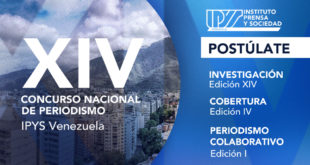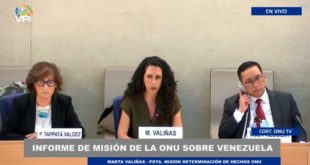Santiago / Geneva August 15, 2013
Mireya Manquepillán Huanquil, is the director of Kimche Mapu Radio, the Mapuche community radio station located in the Puquiñe Valley, Los Rios Region in Chile, against which the Chilean legislation criminalizing community broadcasting without authorization was applied. On August 13 she presented her case in Geneva, to the UN Committee on the Elimination of Racial Discrimination (CERD) depicting the difficult situation of indigenous media in her country.
The mission is an initiative of IFEX-ALC (IFEX Alliance in Latin American and the Caribbean), and the Association of Community Radio Broadcasters (AMARC), from one of the emblematic cases included in the 2012 Annual Impunity Report: Faces and Traces of Freedom of Expression in Latin America and the Caribbean (http://ifex.org/alc/es/impunidad2012/index.html). Given its importance regarding the right to free expression, among other rights, the mission was approved unanimously at the Annual Meeting of the IFEX-ALC Regional Alliance n June 2013, in Phnom Penh, Cambodia.
The Committee of Independent Experts became aware of the report “Status of Indigenous Community Radio Broadcasting in Chile: The Case of Kimche Mapu Radio of Puquiñe Valley”, which was prepared with that particular purpose and was also supported by other organizations, including the International Human Rights Network (RIDH).
The International Convention on the Elimination of All Forms of Racial Discrimination requires the State of Chile to remove all obstacles of fact and law, which prevent the exercise of indigenous peoples’ rights under conditions of equality.
The possibility for indigenous peoples to make broadcasting projects makes possible the exercise of various human rights, especially freedom of expression, a cornerstone of a democratic society. Broadcasting projects also allow indigenous communities to preserve and promote their culture, customs and language.
The Mapuche community media, particularly community radio stations, have limitations in their development and full exercise of their rights. Chile is one of the countries that apply criminal law to transmissions made without authorization. Mireya Manquepillán, director of Kimche Mapu Radio, was subject to criminal prosecution for illegal transmission. The prosecution, considering that the case had a low social impact, subsequently suspended the case.
In addition to presenting her case, Mireya Manquepillán had a dialogue with the CERD experts, and together with the RIDH, representing IFEX and AMARC, raised the difficulties Chilean community radios are subject to, and stressed that it is necessary to implement an affirmative action policy to encourage the establishment of community radio stations and clear the way for indigenous radio stations through technical and financial support, in addition to a radical change in the law.
It should be understood that community and indigenous radio stations are an essential tool for the exercise of freedom of expression, and ensuring community access and the protection of their culture and language. Furthermore, it should be understood that the State of Chile is failing to meet its obligations to promote the rights of indigenous communities, by failing to have a clear policy to support indigenous broadcasting and maintaining poor legislation on the matter.
Mireya Manquepillán made the following recommendations to CERD for the Chilean State, based on the observations already made and aiming to improve the social function of Mapuche community media, as well as to defend their communicators and to obtain the application of different international standards:
- Repeal Article 36 letter b a) of the Telecommunications Law 18,168, and decriminalize community broadcasting without concession.
- Create public policies that allow First Nations to access radio and TV frequencies, in application of the provisions of ILO Convention No. 169 and the Declaration of the United Nations on Indigenous Peoples.
- Support funding and/or training of Mapuche media outlets, especially those that use the Mapudungun language.
Besides the presentation of the report and the intervention at CERD, Mireya Manquepillán had other meetings with the Chilean Mission to the UN, the Minister of Social Development, and the Director of the National Indigenous Development Corporation (CONADI), all of them in the context of the defense of indigenous and Mapuche radio stations in Chile.
It is noteworthy that CERD should present its recommendations to the Chilean government on August 29. This Committee questioned the Chilean government representatives on the issues identified that are being faced by community radios, and about the lack of access to information of the indigenous peoples of Chile. These issues were not considered in its official report, probably because it was not showed by the State as the country is being examined by CERD in 2013. In fact, this question is innovative, as it is the first time that the CERD refers to it in the case of Chile.
The case of Kimche Mapu Radio, portraits an issue that involves freedom of expression and indigenous racial discrimination, and reflects, to some extent, what happens in Bolivia, Peru, Brazil, Honduras, Guatemala and Mexico, among other countries in Latin America. In that sense, if CERD makes a statement against the Chilean state for the unjust situation on this issue, it will create a useful precedent for other nations in the region.
 IPYS Instituto Prensa y Sociedad Venezuela
IPYS Instituto Prensa y Sociedad Venezuela



